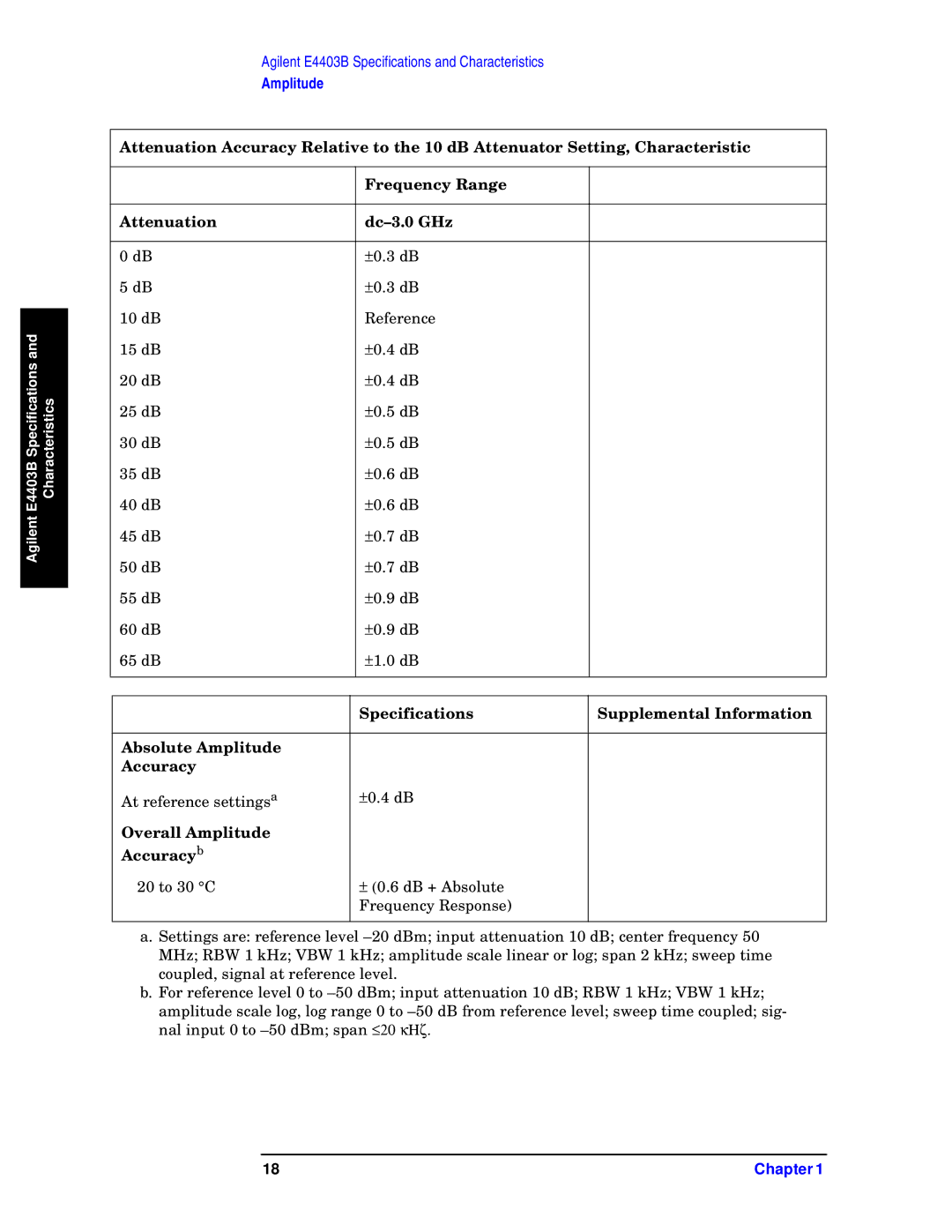E4403B, E4411B, E4408B specifications
Agilent Technologies, a leader in electronic measurement solutions, has developed a range of instruments that revolutionize the way engineers and scientists perform RF and microwave analysis. Among these, the E4408B, E4411B, and E4403B stand out as highly versatile and powerful tools suited for various applications ranging from telecommunications to aerospace.The Agilent E4408B is a high-performance spectrum analyzer that boasts a frequency range from 3 Hz to 26.5 GHz, making it suitable for a wide array of RF measurements. Its key features include a high dynamic range and a low phase noise, which considerably enhance measurement accuracy. The E4408B incorporates advanced digital signal processing technology, enabling real-time analysis of signals with remarkable precision. With its large touchscreen interface, users can easily navigate complex measurements and visualize data in an intuitive manner.
Another significant instrument is the E4411B, a versatile power meter that excels in measuring various types of RF power. Capable of measuring both average and peak power, the E4411B offers a frequency range from 9 kHz to 6 GHz. This power meter is particularly valued for its high-speed measurement capabilities and high accuracy, supporting a wide range of application scenarios such as wireless communications and broadcasting. Its built-in memory and connectivity options allow users to log and analyze data efficiently, enhancing the overall workflow.
The Agilent E4403B is a signal analyzer that supports a frequency range from 9 kHz to 3 GHz. This instrument is primarily designed for the analysis of communication signals, and it features a frequency domain analysis capability that makes it indispensable for modern communication systems. With its intuitive user interface, the E4403B facilitates quick access to vital measurements, reducing measurement times significantly. The analyzer’s excellent IP3 (third-order intercept point) specifications ensure reliable signal integrity, essential for ensuring robust communications.
In summary, Agilent Technologies' E4408B, E4411B, and E4403B represent a strong suite of measurement tools equipped with advanced technologies and features. They provide engineers with the capabilities needed to perform precise RF and microwave measurements across various industries, making them invaluable assets in the development and testing of modern electronic systems. With their user-friendly interfaces and high-performance specifications, these analyzers contribute significantly to innovation in technology and communication.
